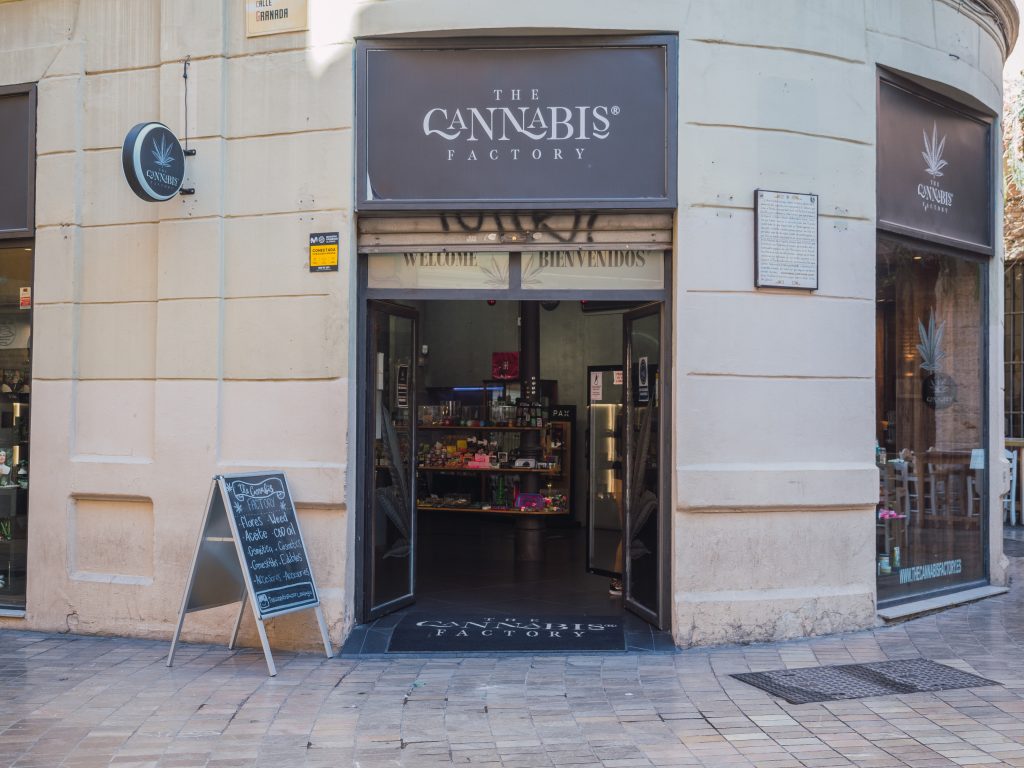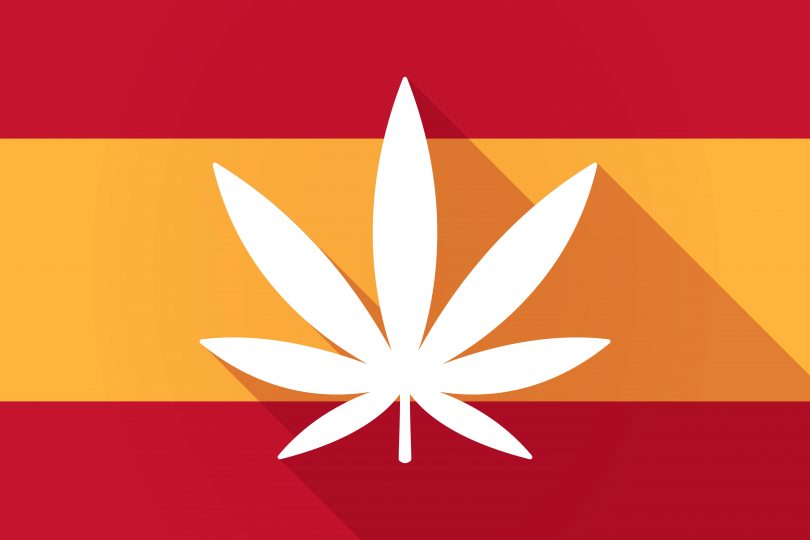The USA has certainly dominated the legal cannabis market in recent years, with now 18 states having fully legalized cannabis and 38 of them having legalized it for medical use. However, certain parts of Europe have been showing signs of real change also. You’d think that a continent containing the Netherlands and specifically Amsterdam would do more for cannabis legalization but, on the whole, stagnancy has been rife throughout. The UK, France and Italy have been infamous for their slow and steady approach. However, small nations like Luxembourg and Malta have recently decided to take big strides towards weed legalization.
Germany is supposedly only a few years away and Spain has been known to have an underground culture of legal cannabis establishments. But what about Spain and their famous cannabis clubs? Well, in 2021 it was announced that their industry of secret weed clubs would have to come to an end, but has that actually happened? Let’s take a deeper look.
We’re here to keep you up to date with all the latest stories and changes. We cover tons of topics in the emerging cannabis industry, and put out the THC Weekly Newsletter, so you can subscribe and keep up with everything going on. Plus, sign up and you’ll get some sweet deals on products like edibles, vapes, and other cannabis paraphernalia, including cannabinoid compounds.
Spain
Spain is a hot, beautiful country at the bottom western side of Europe, with a population of around 50 million. What was once the world’s first global empire, is now a proud nation that is home to the second most-spoken native language in the world: Spanish. The design and architecture in Spain is an incredible balance between rustic and artistic. The Spruce writes:
“Spanish mission architecture has retained many of the classical building elements throughout the years. Blending influences from Spain, Mexico, and Indigenous cultures, this simple and rustic, yet beautiful architectural style has become a popular choice in warmer climates across the United States”
Barcelona hosts some of Gaudi’s best work. The pinnacle of this is his iconically designed La Sagrada Familia.
Cannabis in Spain
Cannabis in Spain, like many other nations, is a slightly grey area. In the context of the rest of Europe, Spain is more liberal than most, but is not quite at the level of many US states. At the current moment, cannabis in Spain is decriminalised for personal cultivation and use, but is illegal to sell or to purchase. It’s confusing to understand it completely and it’s actually this confusion that led to the existence and creation of cannabis clubs. But we’ll get on to that later. First of all, let’s be a little more specific around the legal situation.
Selling Cannabis
It is 100% illegal to sell cannabis buds in Spain. However, it is not illegal to sell the likes of seeds or hemp products. This is quite common in European countries. CBD products are legal in Spain, as long as no more than 0.2% THC is contained (this will go up to 0.3% in 2023). However, these CBD products cannot be in the form of buds – they must only exist as edibles, drinks or tinctures.
Purchasing Cannabis
Purchasing cannabis is illegal through and through. Like any other country, there are street dealers who will try to sell it to you on the streets or on beaches, but ultimately that transaction will be considered unlawful. But with Spain’s cannabis clubs, you can become a member and indirectly purchase cannabis that way. By paying a members fee, you are then eligible for their products.
Cultivating Cannabis
The growing cannabis laws in Spain do differ from much of Europe; it makes them stand out. It is actually legal to cultivate cannabis in the privacy of your own home in Spain, but there must be no more than 2 plants. Plus, these plants must be grown out of sight of neighbours or other passers by. Growing cannabis in secret? Well, this sounds the same as any other country, doesn’t it? however if you are caught then you won’t be prosecuted as what you’re doing is technically legal if you stick to within the guidelines.
In 2022, Spanish officers raided a cannabis cultivation ground and destroyed around 415,000 plants, worth up to 100 million euros. The CBD-based plants were being grown to be used to treat medical issues. However, Sky News writes:
“Although CBD sale and consumption is legal across Spain and in many European countries, Spanish law bans the cultivation of cannabis plants for anything other than industrial purposes, such as textiles and seeds, according to the Agriculture Ministry”
Medical cannabis in Spain is not really regulated and thus does not have much of an industry in the country.
Smoking or Vaping Cannabis
Whether you’re smoking or vaping cannabis, it is illegal to do this in public places in Spain. This includes streets, parks, buildings, beaches – anywhere that is considered a public space. There are hefty fines, confiscations and even prison sentences if people don’t obey these laws. However, this means that smoking or vaping cannabis in private places is allowed. It is this exact law that led to the invention of cannabis clubs. Their whole purpose was to be this exact private place for people to consume weed. The logic was this: If there were private clubs for people to consume cannabis, then it would not be breaking any laws.
Cannabis Club
Officially, the first cannabis club in Spain opened in 2001 but it was from 2007 that the industry began to boom. It is believed that there are now more than 500 cannabis clubs in the country, all having thousands of members. 400 of these clubs exist in Barcelona, but they also exist in many other cities in Spain – not just Barcelona and Madrid. The original idea of these clubs, as previously mentioned, was to offer a private place for people to consume cannabis legally. Unlike the Amsterdam and California model, this was not a profit scheme, it was more of an underground movement. Members pay an upfront fee, and are then allowed to have access to the club, which grows and offers its own cannabis to members. Transform Drugs writes:
“With no profit motive to increase cannabis consumption or initiate new users, the clubs offer a more cautious, public health-centred alternative to large-scale retail cannabis markets dominated by commercial enterprises.”

This is why it can be quite difficult to join Spanish cannabis clubs, especially if you’re a tourist. There are certain strict rules that must be abided by. You need to have an ID to join, you need to have a Spanish address to join, and in some cases you need to be referred by an existing member to join. Cannabis club owners are aware that their entire existence relies on the respect and well-mannered behaviour of their members. Spain Weed Guide writes:
“At these clubs, you are not actually buying weed. As a rule of thumb, you want to avoid the topic of buying products while inside. You will either be corrected or in some extreme circumstances, asked to leave.”
Buying cannabis is illegal, but paying a membership fee and smoking cannabis on private premises technically is not. The entire existence of these clubs rely on certain legal loopholes. However, that’s what makes the cannabis clubs quite fragile.
Have They Closed Down?
In 2021, the supreme court of Spain supposedly shut a legal loophole down that allowed for Spanish cannabis clubs to exist. After this, it was reported that many if not all of these holy places would face closure. But since then, it’s all been a little quiet from the media. So what has actually happened? The Guardian writes:
“The associations began as private clubs where members could buy and smoke cannabis on the premises. In recent years, many have departed from this model to become outlets for the massive quantities of cannabis grown in Catalonia, often under the control of eastern European and other mafias.”
What began as a strict, underground members club culture, has now become many clubs trying to promote cannabis. This model is more similar to that of California and Amsterdam. Whilst not all cannabis clubs run this way, even the existence of one or two rebel clubs like this is enough to force the entire industry to close down. The law that once said that: “private consumption of cannabis by adults … is part of the exercise of the fundamental right to free personal development and freedom of conscience”, was overturned in 2017. Since then, the city of Barcelona was running on its own independent regulated laws but that ability has now also been overturned. From reports it seems that many owners of cannabis clubs knew that this day would come, but enjoyed the ride nonetheless. The simple members fee of around 10 euros was enough for the clubs to be seen as money-making, cannabis-promoting establishments.
When Harris Bricken, a cannabis law blogger, attended the 2022 Cannabis Business Conference in Barcelona she wrote on what she heard from many activists and poltictical figures:
“After all these years of cannabis movement in Spain not only do we have no regulation of medical use or medical cannabis, but, outside of decriminalization there is not even a legal framework for private cultivation and consumption.”
Final Thoughts
What had begun as something so sweet, was now becoming sour. Whilst cannabis clubs in Spain do still exist, they have become stricter and harder to be a part of. And the ones that do, can very easily and frequently be shut down.
Hello and welcome!! Thanks for joining us at CBDtesters.co/Cannadelics.com, your first choice for independent news coverage of the cannabis and psychedelics markets. Drop by frequently to stay up-to-date on the exciting landscape of cannabis and psychedelics, and subscribe to The THC Weekly Newsletter, to stay ahead on everything happening.







